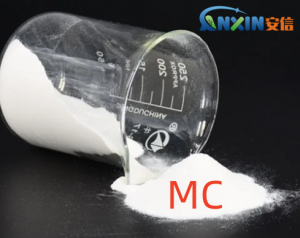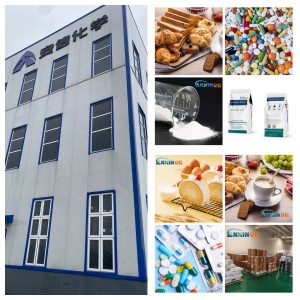Methylcellulose (MC) is a nonionic cellulose ether made from natural cellulose via a methylation process. It exhibits excellent solubility, thickening, film-forming, and lubricating properties, forming a transparent colloidal solution in water. Being non-toxic, odorless, and highly stable, MC is widely used in industries such as construction, food, pharmaceuticals, coatings, and cosmetics.
1. Preparation Before Use
Before using MC, it is necessary to select the appropriate grade (viscosity, degree of substitution, purity, etc.) based on the intended use. MC is typically supplied in powder or granular form and is hygroscopic, so it must be stored sealed to prevent moisture and clumping.
Common Tools and Materials:
Clean mixing container
Cold or warm water (do not dissolve directly in boiling water)
Stirring device (mechanical stirring for more uniformity)
2. Dissolution Method
Methylcellulose is a thermosoluble material that dissolves in cold water but not in hot water. Therefore, the correct dissolution procedure is crucial:
Dry Mixing Method
Methylcellulose is dry-mixed with other powdered raw materials (such as cement, gypsum, and fillers), then stirred with water. This method is commonly used in construction dry-mix mortars, tile adhesives, and other applications.
Dispersion Dissolution Method
Steps:
First, sprinkle the required amount of MC evenly into cold water, stirring while adding to prevent clumping.
Let it sit for 30 minutes to 1 hour to allow it to fully swell.
Stir thoroughly to obtain a transparent or translucent solution.
Note: Do not use boiling water directly, as this will cause the MC to form gel clumps and be difficult to dissolve.
Hot Water Pretreatment Method (Commonly Used in Industry):
First, moisten the MC with hot water (approximately 80°C), then add cold water to lower the temperature and dissolve it. This method is suitable for preparing highly concentrated solutions.
3. Dosage and Order of Addition
The dosage of MC varies by industry, but the general range is:
Construction Industry: 0.1%-0.5% for tile adhesives, plaster mortars, and putty powders to improve water retention and workability.
Food Industry: 0.25%-2% for thickening, stabilization, and film formation in products such as ice cream, jelly, and pasta. Pharmaceutical Industry: 0.3%-5% for tablet binders, capsule wall materials, and thickeners.
Addition Order: MC should be dispersed before or simultaneously with other ingredients to avoid clumping caused by later addition.
4. Usage Precautions
Dissolution Temperature Control: Avoid dissolving directly with boiling water. Use cold water first, then hot water, or dry mix to disperse.
Avoid Agglomeration: Stir slowly and evenly, and do not add a large amount of MC at once.
pH Stability: MC is stable within the pH range of 3-11. Exceeding this range will affect viscosity and solubility.
Storage Conditions: Store in a sealed, moisture-proof container, away from direct sunlight.
Compatibility with Other Additives: Precipitation or viscosity changes may occur when combined with water-soluble salts and certain cationic substances; testing should be performed in advance.
5. Industry Application Examples
Architectural Coatings: MC acts as a thickener to improve leveling and workability.
Food Industry: Used in jellies, beverages, and frozen foods to thicken and stabilize.
Pharmaceuticals: Used as a tablet disintegrant and capsule wall material to improve drug stability. Cosmetics: Used as an emulsion stabilizer in lotions and facial cleansers to enhance texture.
The key to using methylcellulose correctly lies in mastering the dissolution method, controlling the addition ratio, avoiding clumping, and adjusting the application process according to the application. Its environmental friendliness, safety, and excellent performance make it an indispensable polymer material across various industries.
Post time: Aug-06-2025








